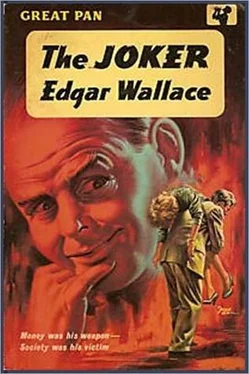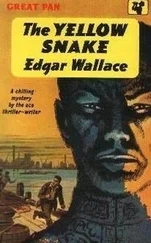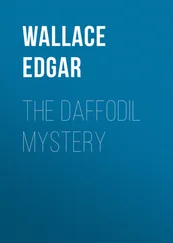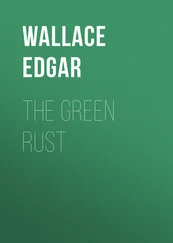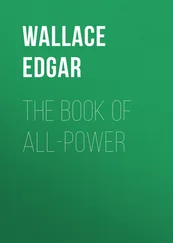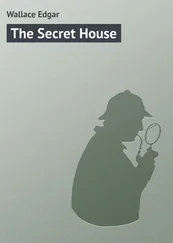Edgar Wallace - The Joker
Здесь есть возможность читать онлайн «Edgar Wallace - The Joker» весь текст электронной книги совершенно бесплатно (целиком полную версию без сокращений). В некоторых случаях можно слушать аудио, скачать через торрент в формате fb2 и присутствует краткое содержание. Год выпуска: 0101, Жанр: Старинная литература, на английском языке. Описание произведения, (предисловие) а так же отзывы посетителей доступны на портале библиотеки ЛибКат.
- Название:The Joker
- Автор:
- Жанр:
- Год:0101
- ISBN:нет данных
- Рейтинг книги:5 / 5. Голосов: 1
-
Избранное:Добавить в избранное
- Отзывы:
-
Ваша оценка:
- 100
- 1
- 2
- 3
- 4
- 5
The Joker: краткое содержание, описание и аннотация
Предлагаем к чтению аннотацию, описание, краткое содержание или предисловие (зависит от того, что написал сам автор книги «The Joker»). Если вы не нашли необходимую информацию о книге — напишите в комментариях, мы постараемся отыскать её.
The Joker — читать онлайн бесплатно полную книгу (весь текст) целиком
Ниже представлен текст книги, разбитый по страницам. Система сохранения места последней прочитанной страницы, позволяет с удобством читать онлайн бесплатно книгу «The Joker», без необходимости каждый раз заново искать на чём Вы остановились. Поставьте закладку, и сможете в любой момент перейти на страницу, на которой закончили чтение.
Интервал:
Закладка:
‘I think it is safe for you to leave him,’ he said. ‘He is making a better recovery than I dreamt was possible. I suppose he has said nothing about his adventures?’
‘Nothing,’ said Jim, and the man of medicine realised that, even if Sir Joseph had explained the strange circumstances of his arrest and appearance in the police court, it was very unlikely that he would be told.
Early the next morning Jim called at Downing Street and saw the Prime Minister.
‘He is under the impression that he was in a car accident after leaving Park Lane. He remembers nothing about the speech in the House; the doctors will not allow him to be told until he is strong again. I have very grave doubt on one point, sir, which I want to clear up. And to clear it up it may be necessary to go outside the law.’
‘I don’t care very much where you go,’ said the Prime Minister, ‘but we must have the truth! Until the facts are known, not only Sir Joseph but the whole Cabinet is under a cloud. I will give instructions that you are to have carte blanche, and I will support you in any action you may take.’
With this confident assurance Jim went on to Scotland Yard to prove the truth ‘of a theory which had slowly evolved in the dark hours of the night; a theory so fantastical that he could hardly bring himself to its serious contemplation.
CHAPTER 19
FOUR HUNDRED and fifteen cablegrams were put on the wire in one morning and they were all framed in identical terms:
Remit by cable through Lombard Bank Carr Street Branch all profits taken in Rata Transaction 17 to receipt of this instruction. Acknowledge. Rata.
This message was dispatched at three o’clock in the morning from the GPO.
The Foreign Department manager of the Lombard Bank was an old friend of Mr Ellenbury, and had done business with him before. Mr Ellenbury drove to the bank the following afternoon and saw the head of the Foreign Department.
‘I am ejecting some very extensive cable remittances through the Lombard,’ he said, ‘and I shall want cash.’
The sour-looking manager looked even more sour.
‘Rata’s, I suppose? I’m surprised that you are mixed up with these people, Mr Ellenbury. I don’t think you can know what folks are saying in the City…’
He was a friend and was frank. Mr Ellenbury listened meekly.
‘One cannot pick and choose,’ he said. ‘The war made a great deal of difference to me; I must live.’
The war is an unfailing argument to explain changed conditions and can be employed as well to account for adaptable standards of morality. The manager accepted the other’s viewpoint with reservations. ‘How much has Harlow made out of this swindle?’ he asked, again exercising the privilege of friendship.
‘Someday I will tell you,’ said the lawyer cryptically. ‘The point is, I expect very large sums.’
‘Sterling or what?’
‘Any currency that is stable,’ said Mr Ellenbury.
That evening came the first advice—from Johannesburg.
The sum remitted was not colossal, but it was large. New Orleans arrived in the night and was delivered to Mr Ellenbury with Chicago, New York, Toronto and Sydney.
The cable advices accumulated; Mr Ellenbury took no steps to draw the money that was piling up at the Lombard Bank until the second day.
On the morning of that day he walked round his bedraggled demesne before going to the City. He had grown attached to Royalton House, he discovered, and almost wished he could take it with him. It was ugly and dreary and depressing. Even the vegetable garden seemed decayed.
Pale ghosts of cabbages drooped like aged and mourning men amidst the skeleton stalks of their departed fellows.
Across the desolation came the gardener, his shoulders protected from the drizzle by a sack.
‘I’ve got a load of stuff to fill the pit,’ he said. ‘Came yesterday.’
The pit was an eyesore and had been for thirty years. It was a deep depression at the edge of the kitchen garden and Mr Ellenbury had sited many dreams upon it. An ornamental pond, surrounded by banked rhododendrons. A swimming pool with a white-tiled bed and marble seats, where, hidden from the vulgar eye by trellised roses, a bather might sit and bask in the sun. Now it was the end of dreams—a pit to be filled. He stood on the edge of it. An unlovely hole in the ground, the bottom covered with water, the rusty corner of a petrol tin showing just above the surface. By the side was a heap of rubbish, aged bricks and portions of brick, sand gravel, sheer ashpit emptyings.
‘I will fill it in—I have promised myself that exercise,’ said Mr Ellenbury, forgetting for the moment that by tomorrow he would be filling in nothing more substantial than time.
The slimy hole held his eyes. If he could put Harlow there and see his big white face staring up from the mud—that would be a good filling! He felt his face and neck go red, his limbs tingling. Presently he tore himself away and walked back to the house.
The car that Rata’s hired for him was waiting—the driver bade him a civil good morning and said the weather was the worst he had ever known. Mr Ellenbury went in to breakfast without replying. The sight of the car was suggestive.
There was another garage known to Mr Ellenbury where a car could be hired and no inconvenient questions asked. Stated more clearly, there are many people in London engaged in peculiar professions, to whom money was not an important consideration. They could not buy loyalty, but they were willing to pay for discretion.
Nova’s Garage had a tariff that was considerably higher than any other, but the extra cost was money well spent. For when the police came to Nova’s to learn who was the foreign-looking gentleman who had driven away from a West End jeweller’s with the diamond ring he had bought and the row of pearls that had disappeared with him. Nova’s were blandly ignorant. Nor could they recognise the lady who had driven the rich Bradford merchant to Marlow and left him drugged and penniless in the long grass of the meadows.
In the afternoon the car came; the chauffeur was a burly man with a black moustache who chewed gum and had no interest in anybody’s business but his own. In this Mr Ellenbury drove to the bank, taking his two suitcases; and went into the manager’s room and checked the cable advices.
‘Immense!’ said the manager soberly. He referred to the total. ‘And more to come, I suppose? It is so big that it almost breaks loose from the standards.’
‘Standards?’ Mr Ellenbury did not know what he was talking about.
‘Right and wrong…like taking a foot-rule to measure St Paul’s.’
Ellenbury, something of a dialectician, could not resist the challenge. ‘Moral conduct isn’t a matter of arithmetic, but a matter of proportion. You can’t measure it with a yard-stick, but by its angle. Ten degrees out of the perpendicular is as much a fault in a gate-post as in the leaning Tower of Pisa…I make this American total a hundred and twelve thousand.’
‘And ten,’ added the manager. ‘The exchange is against us.’
Mr Ellenbury made five bundles of the notes and fitted them into the suitcase.
‘Now we will take the South African remittances,’ said the manager, painfully patient, a sigh in his every sentence, disapproval in every wag of his pen. ‘I suppose you’re right, but it does seem to me that a man’s offence against society is in inverse ratio to the amount of money he pouches.’
‘Pouches!’ murmured Mr Ellenbury in protest.
‘Pockets, then. When you reach the million mark you’ve got to a point beyond the comprehension of a jury. They look at the man and they look at the money, and they say “not guilty” automatically. There ought to be a new set of laws dealing with property—starting with penalties for pinching a million; and working up to the place where you can indict a government for wasting nine figures. And the jury should be made up of accountants and novelists, who’ve never seen real money but think in millions—eighty-seven thousand nine hundred I make it.’
Читать дальшеИнтервал:
Закладка:
Похожие книги на «The Joker»
Представляем Вашему вниманию похожие книги на «The Joker» списком для выбора. Мы отобрали схожую по названию и смыслу литературу в надежде предоставить читателям больше вариантов отыскать новые, интересные, ещё непрочитанные произведения.
Обсуждение, отзывы о книге «The Joker» и просто собственные мнения читателей. Оставьте ваши комментарии, напишите, что Вы думаете о произведении, его смысле или главных героях. Укажите что конкретно понравилось, а что нет, и почему Вы так считаете.
